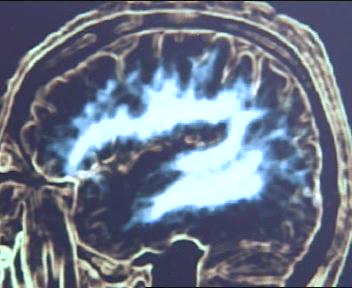
|
Astroseti.org : El Universo a tu alcance Astronomía, Astrobiología, Astrofísica, Astronáutica, SETI y Ciencia en general. |
Te queda mucho por verAstroseti es mucho más que un simple portal de noticias.Por ejemplo traducimos artículos de la misión Kepler de NASA, que descubrirá los primeros planetas similares al nuestro en otras estrellas. |
 Pulse aquí para mostrar columna de noticias
Pulse aquí para mostrar columna de noticias |
|
Enviado por : Emilio González 2004-01-09 00:00:00 Myelin, the key for the human speech hability
Human brain maturation procedure during the speech learning period recorded for the first time by Spanish researchers Science - The brain activity of a boy who begins to speak is recorded for the first time. 18/April/2006 - 16:48 Ep In very just a short time the child goes from a simple stammering to pronounce several hundreds of words, among them their first "mum" or "dad". Now a pioneering study of CRC Corporació Sanitària made in Barcelona has filmed for the first time images of the maturation process of the brain, which leads to the illusionating moment for the parents, of hearing their baby's first words. The investigators have verified how this vertiginous increase of vocabulary takes place between the 18 and 24 months of life, when the cerebral areas related to the language mature very quickly. The language is developed throughout the first years of life, but very little information exists on how this development takes place. The study of CRC Corporació Sanitària, has been published in the Neurology magazine because it is the first made by means of volumetric magnetic resonance and focused specifically in the areas of the language, recording the different stages of maturation in the brain of the children.  "Magnetic resonance images shows us that between the 18 and 24 months of life, the basic connections of the boy's brain are already established and that the faster phase of deposit of myelin in the areas related to the language has finalized. Myelin is a substance that covers the neurons causing the transmission of messages among them to be faster and much more effective", explained doctor Jesus Pujol, neurologist of CRC Corporació Sanitària. "This agrees with the great verbal ground-level burst that the boy experiments in this stage of his life", he added. "Magnetic resonance images shows us that between the 18 and 24 months of life, the basic connections of the boy's brain are already established and that the faster phase of deposit of myelin in the areas related to the language has finalized. Myelin is a substance that covers the neurons causing the transmission of messages among them to be faster and much more effective", explained doctor Jesus Pujol, neurologist of CRC Corporació Sanitària. "This agrees with the great verbal ground-level burst that the boy experiments in this stage of his life", he added.
The results of the study indicate that at the age of one year and half (18 months) the myelin occupies 10% of the volume of the cerebral areas of the language, reaching the 50% of their total maximum maturation, that finalizes in the adult age. But this is not the only one interesting data taken out from the research, made with the participation of CDP in 100 children, surveyed from the birth to the 3 years of age. According to doctor Pujol, "until now we thought that the zones of the brain related to the perception and the understanding matured before than the ones related to the production of the language, since the boy first understands the meaning of the words and soon he learns to pronounce them. But in the images of the study we have seen that the supports to the understanding and the verbal expression mature in a simultaneous form ". THE WORK OF THE MYELIN This work is framed in a line of investigation that doctor Pujol and his equipment are developing on brain and language. "Now, for example, we are working in an investigation that analyzes the way the white substance of the areas of the language matures in the bilingual people. And we are working in another study focused in children who present upheavals in the development of the language, where we are already seeing that alterations in the deposit of myelin in these zones exist", explains the neurologist. At the moment of the birth, the brain contains all the neurons that an adult will need, about one hundred billion. But still they are not mature. It is from then when connections - with more and more complex circuits created every time - are covered of myelin, a substance that makes faster and more effective the transmission of messages between the neurons. This is a process that happens in cycles, following an ordered and predetermined sequence. Thus, it begins in the motor region, and it follows in the auditory and visual ones, progressing quickly during the first months of life to other zones. The results of the investigation show how in half of the studied children the myelin occupies the 10 percent in the motor and sensitive areas in the sixth month of life. While, in the areas of the language this percentage is reached much more later, in the 18th month. Translated to Spanish by Miguel Artime Enlace: http://www.granadadigital.com/pages/amplia.php?id=19295 |
Astroseti es una asociación sin ánimo de lucro formada por voluntarios que dedican su tiempo libre a la traducción de artículos con fines divulgativos.
Esta permitida la utilización de parte del contenido de nuestros artículos en otras páginas web siempre que se incluya enlace a la dirección original en Astroseti. Si desea utilizar el texto completo de uno de nuestros contenidos deberá solicitar autorización.